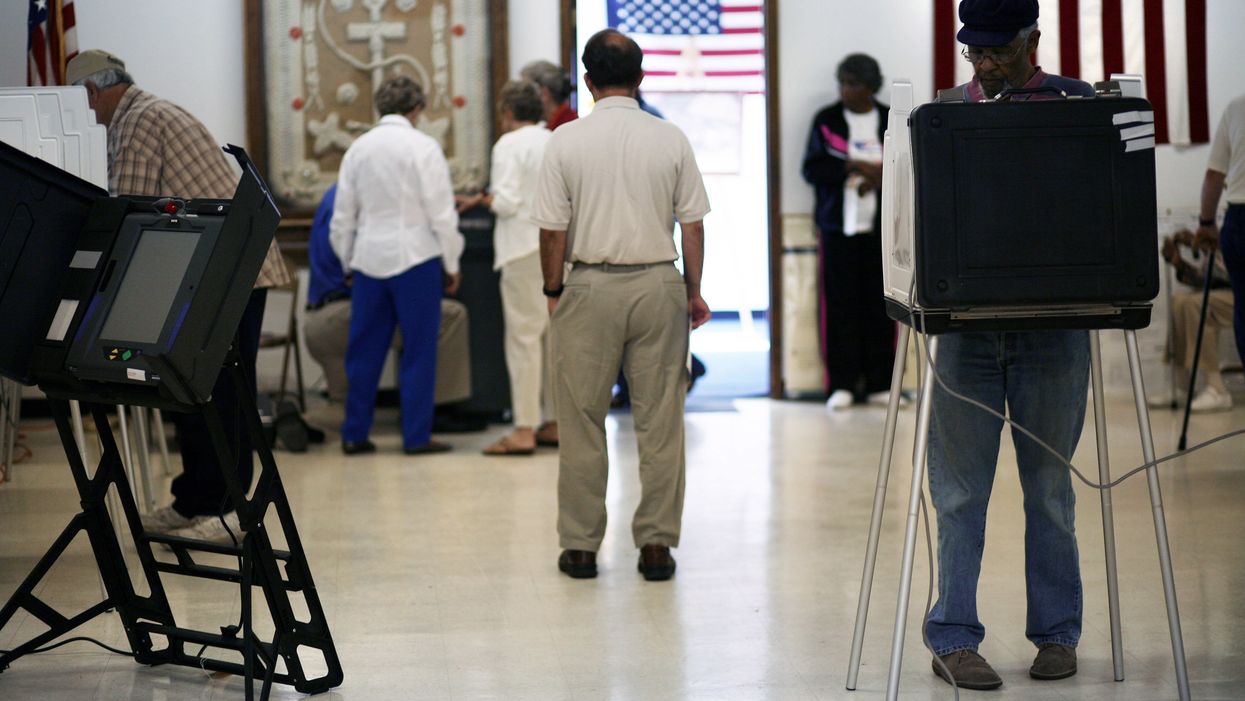On Thursday we published a countervailing view: "More ballot initiatives won't make Americans feel better about politics."
Fields Figueredo is executive director of the Ballot Initiative Strategy Center, which analyzes and supports ballot measures.
Direct democracy finds its roots in ancient Greece, where at the inception, male citizens were able to participate in decision making. The word "democracy," or demos kratis, translates to "power of the people" in Greek.
Flash forward to the United States, where our representative democracy introduced the ballot initiative process to fight corporate excess during the progressive movement of the early 20th century. Since then, ballot measures became a key part of the democratic tradition in more than two dozen states as a check to endure the power of the people.
Over the years, however, big business has found ways to use the ballot initiative process to its advantage. In the 1990s and early 2000s, the ballot measure process was largely a tool of conservatives. The Ballot Initiative Strategy Center was founded during this period to fight conservative inroads at the ballot box. While in its early years, we were largely on the defensive, increasingly we are helping our partners used the ballot box to advance progressive change through ballot initiatives.
Direct democracy is healthy for America, and people should be encouraged to continue to practice it. While measures people support may not always win, direct democracy does not conflict with the government process and, in many ways, it is another form of checks and balances on lawmakers who don't have the people's interests as a priority.
Direct democracy gives a seat at the table to many communities who have been left out of the process. It gives them the opportunity to get their voices heard and enact change. Look at Amendment 4 in Florida, which has given the formerly incarcerated the right to vote. The measure not only had widespread support across party lines, but the people behind the effort were the very individuals impacted by the failure of elected officials to bring justice to people who had served their time.
People are demanding a different future, one that is equitable and just. You see it every day as people march in the streets and demand action on the enormous issues facing our communities. We share this call to action. We believe ballot measures can be a tool for progressive change.
We are proud of how we supported the remarkable ballot initiative wins in 2018. Voters stepped up and rebuked laws steeped in centuries of structural racism and white supremacy. In Louisiana voters stood up to a Jim Crow-era law that did not require unanimous jury verdicts for felony convictions. Voters also stood up for their neighbors, rejecting hate and bigotry at the ballot box in Oregon and Massachusetts.
BISC provided assistance to many of these initiatives including strategy, media training, research and experiments, fundraising, and long-term planning with an eye beyond the campaigns themselves. Our work didn't end after the votes were counted. This work laid the foundation to advance progressive policies for the future.
As we are building for the future, we must be one step ahead of our opposition. We must fight the legal and legislative challenges to our victories. As we continue to succeed we must expect more attacks on the ballot measure process itself. This year, we have seen an unprecedented amount of attacks on that process, with more than 120 pieces of legislation introduced to undermine the will of the people — more than the last two years combined.
We are also seeing a number of attacks on people's rights in 2019 and 2020 with proposed measures and several already on ballots. There are several measures that are anti-immigrant, put severe limits on reproductive rights and fail to address the gun violence epidemic. We are working hand-in-hand with partners to defeat these measures.
Just a few days ago, children not old enough to vote walked out of classrooms across the country to participate in the Climate Justice march, demonstrating that they will be champions for our environment throughout their lives. As a mother, I am convinced our children learn at an early age to question lawmakers, look for ways to make their communities better and speak out when they sense injustice. And while many cannot yet vote, it is our duty to listen and use every form of democracy to build a future where they thrive.
Ballot measures are not a replacement for representative government. We want a government that speaks for the people. But if they fail to listen, we will hold them accountable and ballot measures are one of many tools to do this. When ballot measures and government work together, we build people power and an equitable and just world.




















Marco Rubio is the only adult left in the room